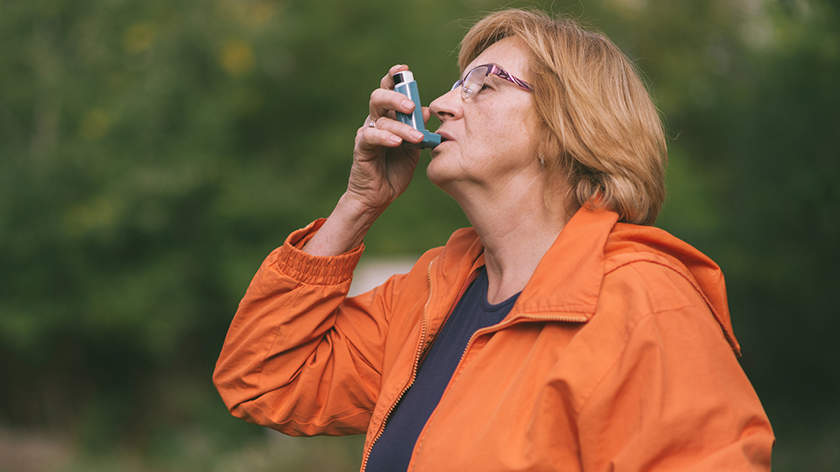Can Weather Trigger Asthma?
For the past month, millions of Americans have been living through some wild weather. There have been some late spring snow storms, severe thunderstorms, torrential rains and tornados. This spring, I saw temperatures hit 80 degrees one day and then 45 degrees a day or two later. For many of us who love to garden, the wild weather has been playing havoc with getting our plants started. By now, my tomatoes and cucumbers are over a foot tall, but at the moment, the tomatoes are barely reaching 5 inches and the cucumbers look anemic and are only a couple of inches above the ground.
Like so many other Americans, I do suffer from allegories and sinus problems that generally flare up at this time of year. It’s not from my struggling veggies but from everything else that is blooming and sending their pollens drifting on the constant winds and breezes that have accompanied the wild weather.
I was told a few years back that I had the early stages of mild asthma, but I don’t use an inhaler or take anything for the asthma. The only time it really bothers me is when I pass by the detergent aisle in a store, or by certain perfumes and fragrances.
I’m far more fortunate than the millions of others who suffer from more severe forms of asthma. In fact, according to the CDC, about 19.0 million people 18 and over suffer from asthma and another 7.7 million younger people under the age of 18 suffer from asthma, for a total of about 26.7 million asthma sufferers. About 7.1% of doctor visits are related to asthma. Sadly, about 3,518 people in the United States die each year from asthma.
With all of the wild weather we have had in the past month, I was wondering if that wild weather could have some impact on asthma sufferers and I found out that it can.
Believe it or not, there is something called thunderstorm asthma, which in 2016 was listed as the cause of death of 10 people in Melbourne, Australia. Thunderstorm asthma has been recorded in Australia, Canada, Italy and the United Kingdom.
Prior to a thunderstorm hitting, winds spread pollen. The rainfall and high humidity of the thunderstorm causes many pollens to rupture. Those ruptured pieces are then fractured into smaller pieces, which in turn, makes them easier to inhale, thus causing an asthmatic reaction. People allergic to rye grass seem to be the most susceptible, but experts say that anyone can suffer from thunderstorm asthma.
Remember those cold waves and spring snowstorms that hit areas of the country? Breathing in cold air often causes many of us to lose some breath, but a sudden cold wave can be especially breath taking for asthma sufferers, causing them to start wheezing.
From Spring to the Fall, many areas of the country see the annual wildfires. The smoke contains all kinds of particles that can and do aggravate asthma.
Certain weather conditions help create smog in urban areas. That smog plays havoc with asthma sufferers as does the dust and ash produced by volcanic eruptions.
I grew up in Arizona and the summer monsoons were often preceded by dust storms. I’ve seen the air so thick with dust that you couldn’t see more than a few feet, that is if you could keep your eyes open with all of the dust swirling around. Knowing how much that dust irritates the eyes, imagine what it does to the lungs of asthma sufferers.
To answer the question, yes, wild weather and other weather conditions can and do affect asthma.









Recent Comments